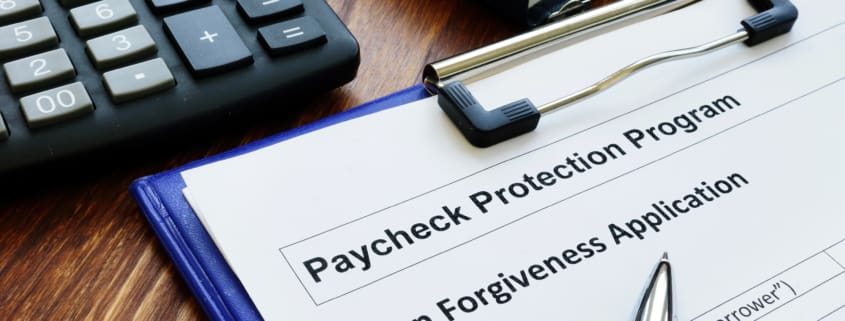SBA PPP LOAN FORGIVENESS DENIAL APPEALS
The team at Milikowsky Tax Law has successfully appealed numerous Paycheck Protection Program Loan Forgiveness denials and we are ready to help you bring your case to the SBA for consideration.
WHAT TO DO IF YOU RECEIVE A LETTER OF DENIAL FROM THE SMALL BUSINESS ADMINISTRATION (SBA)
If you received a letter from the SBA denying your forgiveness request for your PPP loan within the last 30 days, the clock is ticking. You have 30 days to respond and file your appeal. The timeline for SBA forgiveness appeals is inflexible. Once your initial 30-day period expires you will lose your right to appeal SBA’s denial to forgive your PPP loan.
We strongly recommend you hire an attorney to represent your company in the SBA appeal process. The ONLY individuals who can represent your company in the appeal process are: An owner, a company officer, or an attorney. CPAs are not authorized to represent borrowers in the appeal process.
STEPS YOU MUST TAKE TO APPEAL YOUR SBA LOAN FORGIVENESS DENIAL
(this is not a complete list but a summary)
- Review “Final SBA Loan Review Decision Letter”
- Confirm your deadline to appeal the SBA decision
- Gather your documents & facts to identify issues to raise in your appeal
- Review SBA’s prior legal decisions & rulings
- Draft your Appeal (max 20 pages) and include exhibits (your evidence) and SBA’s Final Loan Review Decision Letter.
*You must include your legal arguments, facts, and legal authority to support your position to show SBA’s denial was “clearly erroneous” (there are additional requirements – see SBA’s website). - Create an online account at appeals.sba.gov.
- Answer all questions truthfully and completely when responding to SBA’s online questionnaire.
- Identify a legal representative for your business to handle the SBA Appeal.
- Upload your appeal, exhibits, and SBA Final Decision Letter.
SBA PPP LOAN FAQS & TIPS
Compliance, deductions, forgiveness, employees, the CARES Act has offered support and raised many questions. The experienced team at Milikowsky Tax Law is here to sort through all of the information and give you facts and strategies for your business as you resolve your SBA loan forgiveness.
If my PPP loan is eventually forgiven, can I deduct expenses on my tax return that I paid with my PPP loan?
Currently, IRS published Notice 2020-32 that prohibits deducting expenses if paid with a forgiven PPP loan.
Does the CARES Act exclude from payroll costs employee compensation greater than $100k?
Yes. However, the exclusion only applies to cash compensation and does not apply to all employee benefits such as contributions to a defined benefit retirement plan, group health care coverage, and payment of state/local taxes assessed on compensation.
Can a business include payments to an independent contractor or sole proprietor in the calculations of payroll costs?
No. The independent contractor or sole proprietor is itself potentially eligible for a PPP loan if it satisfies the requirements.
What rules should I rely on to ensure my business complies with the PPP requirements?
A borrower may rely on the laws, rules and guidance available when it submitted its application through the time its application was accepted.
Are there any restrictions on which employees are paid with SBA PPP loan funds?
Yes, employees need to have their “principal place of residence” in the United States.
To determine borrower eligibility for the “500-employee threshold” per the CARES Act, should a borrower count all employees or only full-time equivalent employees?
For purposes of loan eligibility, borrowers must calculate the total number of employees including part-time employees. For purposes of “loan forgiveness,” employers must use “full-time equivalent” employees to determine the extend the forgiveness amount will be reduced for workforce reductions.
Will SBA review all loans to ensure loans were provided to eligible borrowers?
Yes. SBA, in consulting with the Department of the Treasury, will review all loans greater than $2 million (as well as other loans) after a borrower submits a loan forgiveness application to ensure PPP loans were provided to eligible borrowers.
Will SBA review PPP loan of $2M or greater to ensure borrowers accurately and truthfully certified that “current economic uncertainty makes this loan request necessary to support the ongoing operations…”?
Yes. However, a safe harbor provision applies to SBA’s review of PPP loans. Borrowers with an original principal amount less than $2M are deemed to have made the required certification regarding the necessity of the loan request in good faith. Borrowers with loans greater than $2M must be able to substantiate their certification in good-faith. If SBA determines a borrower lacked adequate basis for the required certification, SBA will seek repayment. SBA indicates it may not pursue administrative enforcement or referrals to other agencies (i.e. IRS) if the loan is repaid. However, there is no guidance at this time regarding the amount of time to repay the loan once SBA determines a borrower was not eligible for the loan.
Can an individual who is a partner in a partnership or member of an LLC file a separate application for an SBA PPP loan?
No. The PPP loan must be filed by the partnership or LLC. Only individuals who are self-employed or sole proprietors who filed a Form 1040 Schedule C for 2019 are eligible to file a PPP loan application if they were in operation on February 15, 2020 and their principal place of residence was in the U.S.



